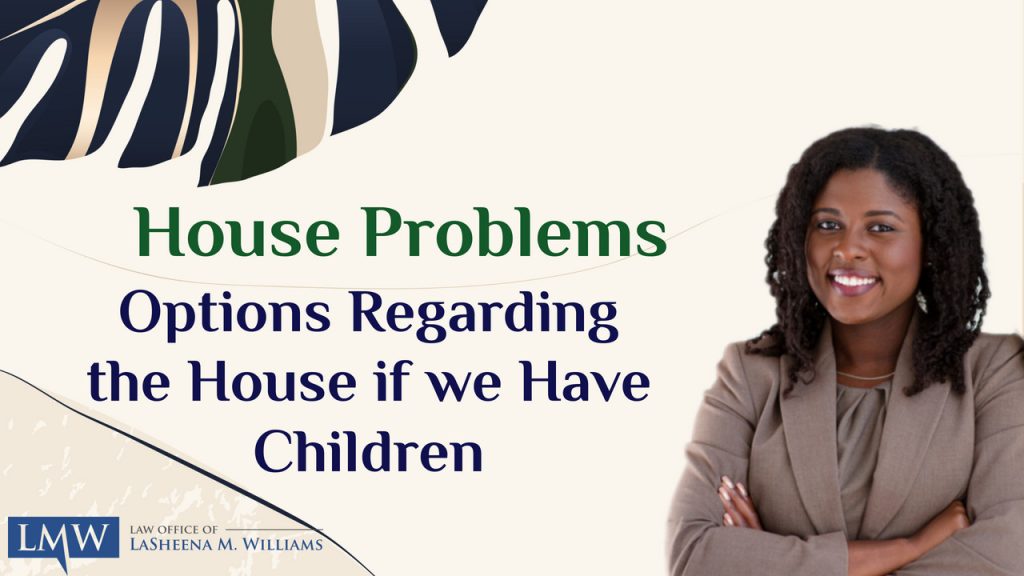Thank you for joining me. My name is LaSheena Williams, and I am a Maryland family law attorney. My firm helps our clients take control of out-of-control domestic situations. Today we will be discussing what to do with your home following an absolute divorce when you have children.
Use and Possession
When you have children, you have different options available to you following a divorce. One of the options is use and possession. Use in possession is where one partner who has custody of the children can stay in the home for up to three years unless agreed upon otherwise. What does that mean? That means if you have shared custody of your child, and you seek use of possession and you have a use and possession award. The court can allow you to stay in that home for up to three years following the entry of a judgment of absolute divorce. Now, it doesn’t necessarily mean that the court will always give you the three years. You may have some other point in time where the court finds it might be a good transition location, for example, if your children are transitioning to a different school or if your children have been in the school for a certain amount of time, but now they’re going to go to middle school or high school, and you can move on. That might be a better break in time for the court. So, the maximum amount of time the court will order is three years, but that does not mean that that is the minimum amount of time the court will order. However, you and your partner can agree on an extended use and possession period or a more defined use and possession period. If you’re going by agreement, you and your spouse can work out what the terms are regarding how long they may or may not stay in that home. You can agree that your former spouse can stand at home up until your youngest child is 18. You can agree on the exact time frame for when they can leave. You can agree that it’s use and possession only until the house gets sold. There are lots of ways that you can draft an agreement that might not necessarily be as draftable in a court order.
Refinancing and Buy Outs
After a divorce, even if you have children if you and your spouse agree that you don’t necessarily want a use in possession period or the court does not order a use in possession period, you have the option to either buy your home out or have your spouse buy you out. To affect the buyout the other spouse must agree that the spouse wanting to buy the home can do so. What does that mean? If you don’t necessarily want your spouse to buy you out even if they can, you can refuse regardless of whether they can or regardless of whether they want to, that’s an option you have. It’s important to speak with a lawyer to figure out what you want to do regarding your options in a buyout situation so that you know what to do moving forward.
Force of Sale
If you and your spouse are unable to agree on whether there should be a buyout or if you and your spouse are not able to refinance the home in order to buy the spouse out and they don’t want to sell the home as well, you can force the sale of your home. They could file a petition with the court requesting that the home be placed for sale and requesting that the court appoint a trustee to sell your home. The trustee is entitled to a fee. However, the trustee will be empowered to do anything necessary to affect that sale, whether it’s placing the home on the market, connecting with a realtor, making sure that the home is in the shape it needs to be for your home to be sold.
If you have any questions about what to do with your home when you have children following the entry of a judgment of absolute divorce or any other post-judgment concerns, contact the Law Office of LaSheena M. Williams at (301) 778 – 9950 or leave an online request for a consultation.
